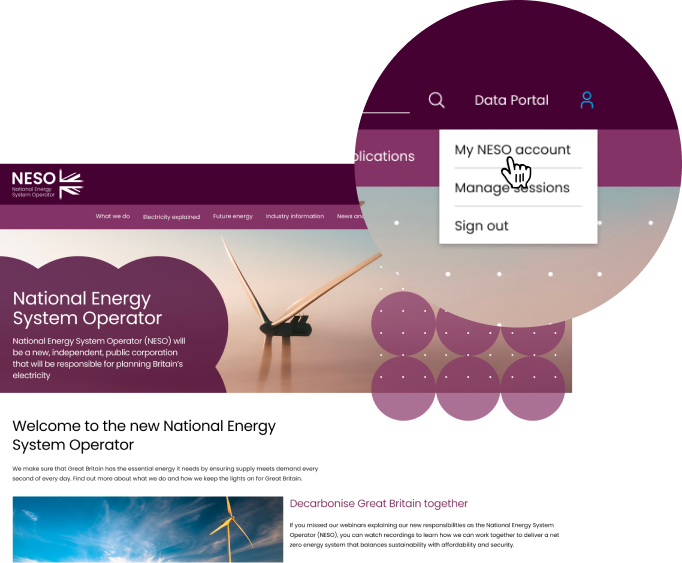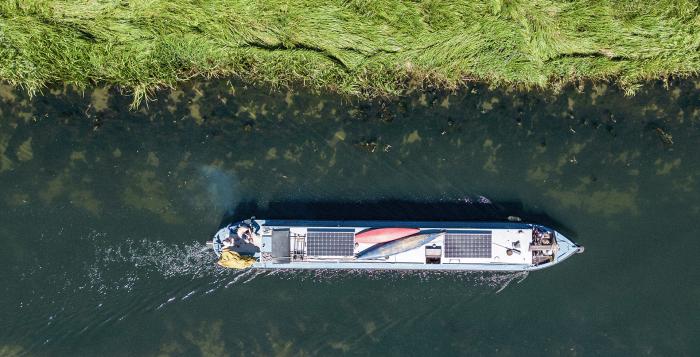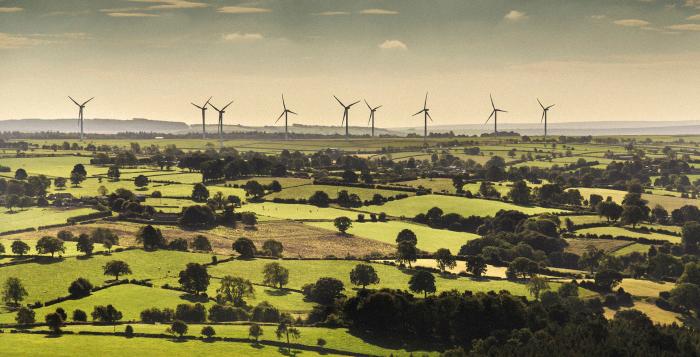Constraints Collaboration Project
With increasing congestion on the electricity transmission system, a long lead time for network reinforcement, and fundamental market reform under consideration by the government’s Review of Electricity Market Arrangements (REMA), NESO is launching the Constraints Collaboration Project. This project is intended to enable NESO and industry to work together to find solutions for thermal constraints, which can be implemented and deliver results in the short term. By results, we mean reducing costs to the consumer or reducing the curtailment of renewable generation (at no additional costs to consumers).
Summary
Transmission thermal constraint costs are increasing year on year as more renewable projects come online. The majority of constraint management actions taken by the NESO involve the redispatch or curtailment of generators, leading to increasing cost and carbon impact. Electricity Ten Year Statement details that the flows of electricity across Scottish boundaries are expected to triple between 2022 and 2030, with associated costs estimated at between £500m to £3bn annually by 2030 and significant amounts of wasted renewable energy.
Both traditional network reinforcements and fundamental reform of the wholesale market will address these issues, but these take significant time so we must explore other options to reduce constraint costs in the short term.
Since January 2024, we have been working with industry to review and assess possible solutions to reducing constraints costs in the short term. The results of this assessment can be found in the three reports below:
- The first report summarised the full market design assessment for each option - (Published July 2024)
- The second report covered the net consumer benefit of the market based measures - (Published July 2024)
- The latest one assessed the value delivered for consumers of a Demand for Constraints service - (Published March 2025)
The outcomes of our work mean that we will be continuing to investigate Demand for Constraints and technical options in more depth as we progress with CCP and we will continue collaborating with industry whilst we do this.

Phase two webinar and Demand for Constraints assessment report
Our Demand for Constraints Assessment presents our findings on the value delivered for consumers from a Demand for Constraints service. On 31 March 2025, we held our phase two update webinar where we provided our latest progress update including the findings of the demand for Constraints assessment report and outlined the next steps.

Regular updates
Sign up for our markets newsletter to receive updates and access to our webinars, featuring discussions on key topics and projects, plus Q&A sessions.
Between January and February 2024, ESO ran the constraints collaboration project (CCP) with the industry to find solutions for thermal constraints, which could be implemented and deliver results in the short term. A total of 30 responses were received from industry. Most of the proposals were discussed at our regular webinars, while the remainder provided useful feedback which NESO will reflect on.
We have now categorised proposed market-based solutions received into 2 main themes: Constraints Management Markets and Using Flexible Assets to Reduce the Flow over Boundaries.

Further details of outcome and feedback received from the industry can be found in the excel document below.
Constraints collaboration project: summary of responses
Detail of outcome:
The summary of responses sets out respondents’ views on the following areas covered in the Constraints Collaboration Project:
- Overview of proposed solution that address constraints
- Value to NESO market design framework (efficient investment, efficient dispatch, value for money)
- Impact and implementation
Detail of feedback received:
We received 30 responses from 13 organisations, including:
- generators and developers
- public body
- academics
We will use this page as a central repository for all ideas submitted and enable commentary and the development of ideas in a collaborative way. In partnership with industry, we will assess the potential new ways of addressing the costs of thermal constraint, focusing initially on the network boundaries with the highest volumes of thermal constraints as highlighted by the Electricity Ten Year Statement. Any potential solution should be implementable ahead of significant planned physical infrastructure and be complementary to any wider code or wholesale market reforms.
We will assess any proposed market-based solution against NESO’s Market Design Framework (MDF), which aims to assess the trade-offs between (i) efficient dispatch, (ii) efficient investment and (iii) value for money. Any solution also needs to be technology agnostic, not impact adversely on system operation, administratively feasible for NESO and does not require legislative changes. Once we have assessed the different options, we will share the outcome and any projects we see as a viable option to take forward for further development.
Our desired outcome is a scope for a new product(s) co-designed with industry, which we can progress to detailed scoping and delivery.
Please see below for a high level timeline for all of our CCP workstreams. We will update this timeline as necessary.

Constraints Collaboration Project Quarterly Webinar- 5 November 2025
| Watch the webinar | Read the Q&A | Download the slides |
Demand for Constraints (DfC) Expert Group Collaborative Session – 9 September 2025
| Read the Q&A |
Constraints Collaboration Project Quarterly Webinar - 4 July 2025
| Watch the webinar | Download the slides | Read the Q&A |
Constraints Collaboration Project phase two update Webinar - 31 March
| Watch the webinar | Download the slides | Read the Q&A |
Constraints Collaboration Project monthly webinar - 19 December
| Watch the webinar | Download the slides | Read the Q&A |
Constraints Collaboration Project monthly webinar - 9 October
| Watch the webinar | Download the slides | Read the Q&A |
Constraints Collaboration Project Final Webinar - 7 August
| Watch the webinar | Download the slides | Read the Q&A |
Sharing the first draft of the Market Design Framework (MDF) assessment for the constraints collaboration project (CCP) - 24 May
| Watch part 1 | Watch part 2 | Download the slides |
Show and listen: sharing methodology to assess industry ideas for the constraints collaboration project (CCP) - 23 April
| Watch the webinar | Download the slides |
Sharing market-based solutions for the constraints collaboration project - 20 March
| Watch the webinar | Download the slides |
Sharing storage-based solutions for the constraints collaboration project – 7 March
| Watch the webinar | Download the slides |
Sharing ideas for the constraints collaboration project webinar - 9 February
| Watch the webinar | Download the slides |
Finding solutions for thermal constraints webinar - 18 January
| Watch the webinar | Download the slides |
Previous events
Watch the recorded presentations by pressing the play icon on the image or download the slides from each session using the link above the image.
Constraints Collaboration Project Quarterly Webinar - 5 November 2025
This webinar is a Quarterly Webinar for Constraints Collaboration Project (CCP)
Constraints Collaboration Project Quarterly Webinar - 4 July 2025
This webinar and slide pack provides an update on NESO's Boundary Flow Smoothing, Intertrip scheme extension, Demand for Constraints, and covers progress on other CCP workstreams.
Constraints Collaboration Project (CCP): Show and Listen Webinar - 19 December 2024
This webinar is a Show and Listen Webinar for Constraints Collaboration Project (CCP)
Final Report and Q&A Session - 7 August
This webinar covers the result of assessment and recommendations from the Constraints Collaboration Project (CCP)
Sharing first draft of the market design framework (MDF) assessment - 24 May (part 1)
This webinar covers sharing the first draft of the market design framework (MDF) assessment for the constraints collaboration project (CCP).
Sharing first draft of the market design framework (MDF) assessment - 24 May (part 2)
This is the second part of the webinar covering sharing the first draft of the market design framework (MDF) assessment for the constraints collaboration project (CCP).
Show and listen: Sharing methodology to assess industry ideas for the constraints collaboration project - 23 April
Sharing methodology to assess industry ideas for the constraints collaboration project (CCP).
Sharing Market Based Solutions for the Constraints Collaboration Project - 20 March
This webinar gives an overview of market based solutions for the constraints collaboration project.
Disclaimer
Please note that this collaboration is not a formal part of any procurement exercise and does not indicate a formal or firm commitment for future commercial opportunities from NESO. Submitting this collaboration also does not commit you or your organisation to any specific course of action.








